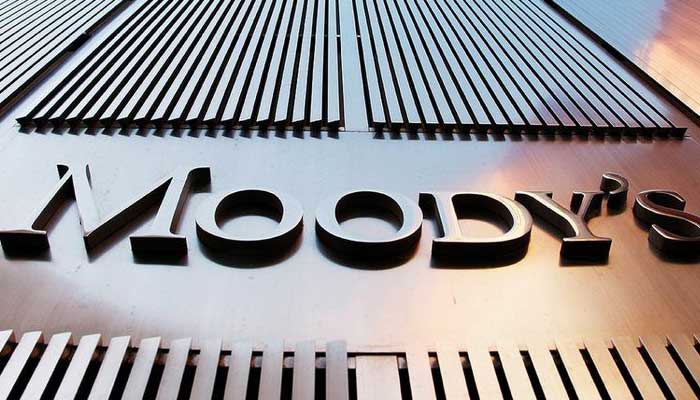Dollar Sukuk offering gets Moody’s B3 rating
KARACHI: Rating agency Moody’s on Tuesday assigned a B3 rating to Pakistan’s US-dollar dominated Sukuk offering, mirroring the country’s issuer rating, which was underpinned by robust long-term growth potential, as well as ongoing reforms that were likely to strengthen policy effectiveness.
Moody’s said the rating could move upwards if Pakistan expanded its revenue base, raised debt affordability, and lowered debt burden beyond current expectations. “A structural reduction in external vulnerability risks, including though higher levels of foreign exchange reserve adequacy that were sustainable and/or increased economic competitiveness that were to lift export prospects, would also put upward pressure on the rating,” it said.
However, if Pakistan’s external position deteriorated further, due to significant widening of the current account deficit and erosion of foreign exchange reserve buffers, which would threaten the government's external repayment capacity and heighten liquidity risks, there would be downward pressure on the rating.
It is worth noting that Pakistan’s external sector vulnerabilities have multiplied, and the country has to pay $8.638 billion till June 2022 on account of foreign loans.
“A continued rise in the government's debt burden, without prospects for stabilisation over the medium-term, would also put downward pressure on the rating,” the ratings agency said.
Pakistan issued the trust certificates through Pakistan Global Sukuk Programme Company Limited, a special purpose vehicle, wholly-owned by the government of Pakistan. The debt and trust certificate issuances of the special purpose vehicle, in Moody's view, ultimately were the obligation of the Pakistani government. The trust certificates would constitute direct, unconditional and unsubordinated obligations of the government of Pakistan.
In Moody's opinion, the payment obligations represented by the securities to be issued by the company rank pari passu with all of the government of Pakistan's current and future senior unsecured external debt.
The company would use the proceeds from the issuance to purchase assets from the National Highway Authority. The amounts subsequently received by the government in consideration for the transaction would be used for general budgetary purposes. Moody's noted that its Sukuk ratings did not express an opinion on the structure’s “compliance with Shariah law”.
Pakistan's B3 issuer rating was underpinned by its relatively large economy and robust long-term growth potential, as well as ongoing reforms that might strengthen policy effectiveness over time, it said.
“Credit challenges include structural constraints to export competitiveness, the government's high debt burden and a narrow revenue base that reduces fiscal flexibility and weakens debt affordability, as well as political risks that can influence the reform trajectory,” the ratings agency said.
It also pointed out the country’s high exposure to environmental and social risks, as well as its weak governance profile. Relatively weak institutions constrain the government's capacity to address environmental, social and governmental risks.
The exposure to environmental risk is Highly Negative (E-4 issuer profile score) because of Pakistan's vulnerability to climate change and the limited supply of clean, fresh and safe water.
The exposure to social risk is highly negative (S-4 issuer profile score), driven primarily by safety concerns that have limited investment and diversification opportunities.
Still very low incomes as well as the limited access to quality healthcare, basic services, housing and education, especially in rural areas, are also important social issues.
Similarly, the influence of governance is also highly negative (G-4 issuer profile score). International surveys of various indicators of governance, while showing some early signs of improvement, continue to point to weak rule of law and control of corruption, as well as limited government effectiveness, the agency noted.
These weaknesses are balanced against a lengthening track record of effective checks and balances and judicial independence for the level of development in the country, and gradually increasing transparency and dialogue in policymaking.
-
 Marc Anthony On Why Bad Bunny’s Super Bowl Show Mattered
Marc Anthony On Why Bad Bunny’s Super Bowl Show Mattered -
 Kid Rock Gets Honest About Bad Bunny’s Performance At Super Bowl
Kid Rock Gets Honest About Bad Bunny’s Performance At Super Bowl -
 Kylie Jenner Reveals Real Story Behind Her 'The Moment' Casting
Kylie Jenner Reveals Real Story Behind Her 'The Moment' Casting -
 Halsey Marks Fiancé Avan Jogia's Birthday With Emotional Note
Halsey Marks Fiancé Avan Jogia's Birthday With Emotional Note -
 China: Stunning Drone Show Lights Up Night Sky Ahead Of Spring Festival 2026
China: Stunning Drone Show Lights Up Night Sky Ahead Of Spring Festival 2026 -
 Andrew's Epstein Scandal: Will King Charles Abdicate Following King Edward's Footsteps?
Andrew's Epstein Scandal: Will King Charles Abdicate Following King Edward's Footsteps? -
 Billy Joel Leaves Loved Ones Worried With His 'dangerous' Comeback
Billy Joel Leaves Loved Ones Worried With His 'dangerous' Comeback -
 Prince William Dodges Humiliating Question In Saudi Arabia
Prince William Dodges Humiliating Question In Saudi Arabia -
 Dax Shepard Describes 'peaceful' Feeling During Near-fatal Crash
Dax Shepard Describes 'peaceful' Feeling During Near-fatal Crash -
 Steve Martin Says THIS Film Has His Most Funny Scene
Steve Martin Says THIS Film Has His Most Funny Scene -
 Kensington Palace Shares Update As Prince William Continues Saudi Arabia Visit
Kensington Palace Shares Update As Prince William Continues Saudi Arabia Visit -
 Fugitive Crypto Scammer Jailed For 20 Years In $73m Global Fraud
Fugitive Crypto Scammer Jailed For 20 Years In $73m Global Fraud -
 Will Andrew Mountbatten-Windsor Finally Go To Jail Now That King Charles Has Spoken Out? Expert Answers
Will Andrew Mountbatten-Windsor Finally Go To Jail Now That King Charles Has Spoken Out? Expert Answers -
 Melissa McCarthy Reveals Her Tried And Tested ‘corpse’ Night Time Routine That’s Lost Her 95lbs
Melissa McCarthy Reveals Her Tried And Tested ‘corpse’ Night Time Routine That’s Lost Her 95lbs -
 Horrifying Pictures Of The Kidnapper Of Savannah Guthrie's Mother Released
Horrifying Pictures Of The Kidnapper Of Savannah Guthrie's Mother Released -
 Andrew's Ex-girlfriend Launches Brazen Attack On Epstein Victims On Piers Morgan Show
Andrew's Ex-girlfriend Launches Brazen Attack On Epstein Victims On Piers Morgan Show




